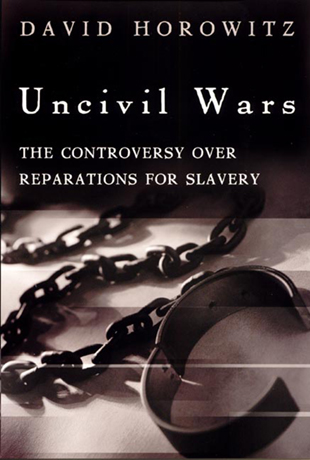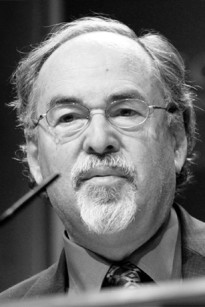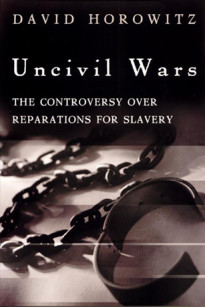The idea that taxpayers should pay reparations to African Americans for the damages of slavery and segregation is quickly becoming a central demand of some civil rights leaders. It has the backing of important black politicians like Rep. John Conyers (D-Mich), distinguished black intellectuals like Henry Louis Gates and activists like Randall Robinson, who led the successful boycott movement against South Africa a decade ago. The Chicago City Council has overwhelmingly endorsed the concept and municipalities and state governments around the country are considering giving it support.
In this well researched and carefully argued book, David Horowitz traces the origins of the reparations movement. He examines the case made by its advocates and concludes that it is “morally questionable and racially incendiary.” He notes that only a tiny minority of Americans ever owned slaves; and most Americans living today (white and otherwise) are descended from post-Civil War immigrants who have no lineal connection to slavery at all. More intriguingly, he also points out that the GNP of black America is so large that it makes the African American community the tenth most prosperous “nation” in the world. But this book is more than just an in depth casebook on the hot button issue of reparations.
In the hope of initiating a dialogue, Horowitz originally presented a summary of his ideas on this subject in the form of an advertisement that appeared in several college newspapers and was rejected by many more. Editorialists in America’s leading papers and several chapters of the American Civil Liberties Union weighed on Horowitz’s side. With the assistance of Richard Poe, Horowitz uses the response to the reparations issue to show how the new racial orthodoxy collides with the free speech battle and what its implications are for American education and culture.





